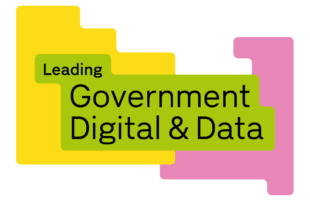
A lot of us rely on getting data from outside our teams to help us to do our jobs. Data that we then use to make decisions. If higher quality data means our judgement can be more accurate, then it’s clearly in our best interests to do all we can to facilitate high calibre information sharing.
In this blog, I share some thoughts on how we might do that based on recent experiences delivering the digital performance data commission. I’ve identified the departmental staff who complete commissions as being key users and am following user-centred design principles to improve their experience of being asked to share data.
Working with colleagues from across government departments, some light touch user research and process mapping have highlighted some key pain points.
- We talk about the digital transformation of government, but much of government is built on legacy infrastructure that pre-date our digital ways of working by some time. This landscape makes some of the data we’re asking for difficult to access, with very manual collation methods required where systems aren’t yet in place to facilitate this.
- Once a return has been put together, the department needs to follow internal clearance procedures to gain approval to share their data with us. Getting time in diaries to allow for required conversations is a challenge, even more so for unexpected commissions when timescales are short.
- These conversations at a senior level will involve challenges as to why certain information is being requested, and decisions on what will and won’t be shared. Depending on how much information we’ve given in our communications, departmental staff may not be able to answer some of the internal challenges they face, reducing the amount of data they are willing to share with us.
- We should also consider that for many of the people who receive these commissions, it is an additional duty to fit in on top of their role, and whichever data request we’re talking about is unlikely to be the only one they’re currently working on.
- Bear in mind that once all the work is done and the commission has been returned to us, there is often no further communication on what happens next to that information. When departments don’t know how their data is being used to represent them it is very difficult to build engagement. This is an exercise with seemingly no point, being completed because it has to be.
To help build engagement with those we commission for data, there are a few things we can do. You can
- Provide clear advance communication of upcoming commission dates to allow departments the time to prepare.
- Outline exactly what is being asked for and the process to follow.
- Share information on the wider work being done to improve the commission experience for departments.
- Hold launch briefings, drop in surgeries for questions and provide one-to-one support for all.
- Help departments to identify bespoke workarounds to be used as an interim proxy where there is a gap between what we ask for and what is available.
- Time requests to ensure that the data wanted is available.
- Provide information on data use and security.
- Talk about what the benefits of the process are for the departments.
- Use a team email for communications so that someone can always be reached and all the right people see the message.
- Include the contacts who will actually complete the commission in the initial email to remove the time lost to internal cascade before work can start.
- Have ongoing discussions about where further improvements can be made.
- Share data visualisations of data commissioned back with departments.
Small changes can make a big difference. I’ve started to implement these changes and our most recent commission brought fewer challenges and faster returns - some were even submitted early. They also provided us with 10% more data than previously, and a better picture of the data landscape in departments, for example knowing why there are gaps in certain areas provides valuable context.
So although we’re only just getting started, early signs are that we’re doing some good. Everyone I’ve spoken to has been incredibly constructive in their feedback on how we build a better data commission template. With their continued help I’m confident we can further reduce the pain of completing a data commission.
Have you got any suggestions for improving data commissions for those who complete them? Do you have some best practice from your own commission to share? Or any information on additional problems I haven’t considered here? I’d love to hear your thoughts, so please get in touch: ddat-performance@digital.cabinet-office.gov.uk

Leave a comment